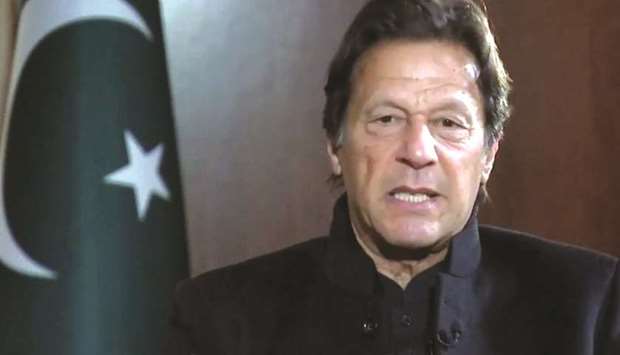Pakistani Prime Minister Imran Khan promised yesterday his government would rein in inflation and lower food prices in a bid to boost the administration’s flagging popularity.
Inflation is at a nine-year high, with 14.6% recorded in January, Pakistan’s Bureau of Statistics said.
Unemployment is on the rise.
Khan took to Twitter, saying he was aware of difficulties facing the people and promised that “come what may, my govt will be announcing various measures that will be taken to reduce prices of basic food items for the common man in Cabinet on Tuesday.”
Shortages of sugar and wheat flour due to rising prices fuelled public anger.
Flour prices almost doubled last month, causing the government to import the food staple.
Khan has ordered a probe into the price hike.
The former cricketer came to power in 2018 on the back of promises of political and economic reforms and to improve quality of life for Pakistan’s 220mn inhabitants, on which he has failed to deliver so far.
Pakistan’s economy has been in crisis since then due to burgeoning fiscal and current account deficits and a huge dip in tax revenues.
Last year, Pakistan secured a loan package worth $6bn from the International Monetary Fund (IMF) to avert a balance-of-payment crisis but the conditions attached to such programmes are highly unpopular.
Interest rates are at an eight-year high at 13.25% while the Pakistani rupee lost about 40% of its value against the dollar.
In addition, increasing prices for gas and electricity drag at the economy.

Prime Minister Imran Khan: u201cCome what may, my govt will be announcing various measures ...u201d
